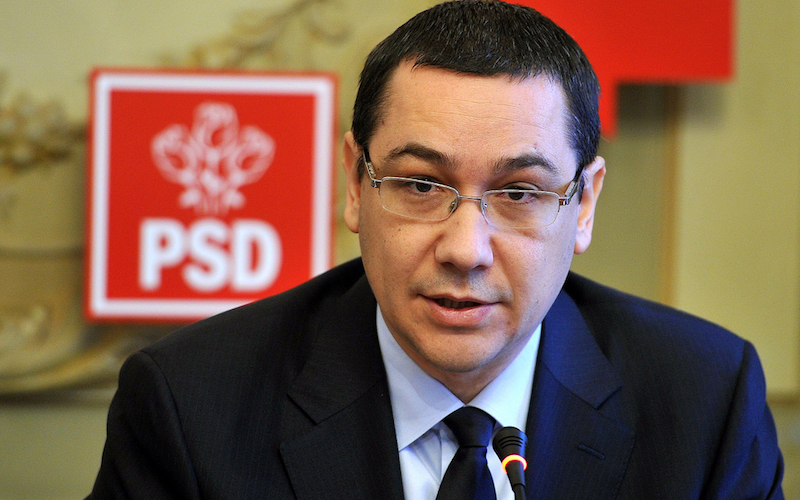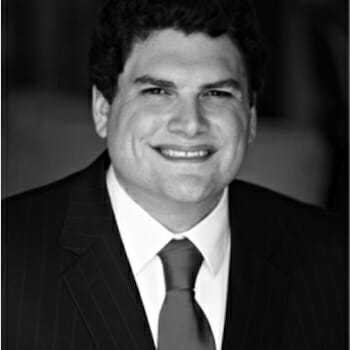
Eastern Europe’s Corruption Renaissance
When Croatia joined the European Union in 2013, hopes were high that the formerly war-ravaged country had broken with its history of violence and corruption. But a recent questionable decision to remove the supervisory board of the public broadcaster, HRT, is shattering those flowery fantasies. The board had recently published a report highlighting “possibly corrupt actions” and “illegal activities” surrounding the procurement process for audio-visual material. The decision to go after the board for blowing the whistle on the crime, rather than the alleged criminals, can be seen as evidence of a government mired in corruption.
The case is symptomatic of a disturbing trend: upon achieving membership, new EU countries tend to slide back into complacency. That trend threatens to undermine the democratic institutions that paved the way for Croatia’s EU accession in the first place. A survey of business managers in Europe, the Middle East and Africa found Croatia to be the most corrupt country in southeast Europe, and nearly 80 percent of managers surveyed by the consultancy firm EY (formerly Ernst & Young) responded that bribery was widespread in Croatian business. In another report, this time produced by the RAND Corporation, Croatia came out as the EU country with the highest risk of corruption in public procurements.
Surprisingly, this is despite Croatia having one of the most lauded anti-corruption agencies in Europe. The Bureau for the Suppression of Corruption and Organized Crime (USKOK) was set up in 2001 under pressure from international bodies, chief among them the EU – after all, tackling corruption was a priority before Croatia would be allowed to join the bloc. The agency’s biggest coup was the 2010 conviction of former Prime Minister Ivo Sanader, sentenced to eight-and-a-half years in prison for bribery relating to the privatization of the national oil company. The rigor and independence with which USKOK pursued its case, and the support it received from the government to do so, raised high hopes that Croatia had turned its back on lawless profiteering.
Having convinced the EU of the same, Croatia was granted entry in 2013. There was such blissful confidence in Croatia’s prospects for reform that it was admitted without being subjected to the same Cooperation and Verification Mechanism (CVM) under which Bulgaria and Romania’s anti-corruption efforts have remained under monitoring since their 2007 accession. The reason for this was as absurd as it was political wishful thinking: EU officials wanted to avoid submitting Croatia to the CVM because doing so would have sent the signal that yet another country was unfit to join the EU upon singing the accession treaty. One EU official speaking at the time was quite honest about this: “we want Croatia to be a good example after the less good examples of Bulgaria and Romania.”
If Brussels was hoping to provide incentives for sweeping reform efforts by sparing Croatia the mechanism, it was setting itself up for disappointment. But even if Croatia had been subject to the CVM, it’s debatable whether that would have prevented the country from backsliding. In Romania’s case, for one, the CVM has proved less than successful: a Eurobarometer survey found that perceptions of corruption have actually increased in Romania since its accession, to 67 percent.
Unfortunately, there is good reason for Romanians to feel this way. Last week, a case against former Prime Minister Victor Ponta on charges of money laundering (and being an accessory to tax evasion) was dropped by the Supreme Court due to a lack of evidence. Ponta’s not off the hook yet, though, as he still faces similar charges in a separate case. Another high-profile case is that of the late Dan Adamescu. Once one of Romania’s richest people, he was sentenced to four years in prison for bribing judges in return for favorable verdicts in various cases involving his companies.
Adamescu decided his best bet was to attack the institutions prosecuting him, claiming that the case was a witch hunt orchestrated by the National Anticorruption Directorate (DNA). The DNA, like their Croatian counterparts, is held in high regard by EU and international authorities. Dan may have been passed, but the campaign continues: his son, Alexander, lives in the UK and pursued a similar strategy when Romanian authorities issued a European arrest warrant for him. The younger Adamescu took his case to the British courts, arguing that he was being hounded on politically motivated charges like his father. Those efforts got considerable traction in the UK media, presenting Alexander as a victim while glossing over his role in his father’s business empire.
More than anything else, though, it was the current government’s aborted attempt in January to limit the scope of corruption prosecutions and essentially decriminalize misconduct that epitomized the state of affairs in Romania. Led by Liviu Dragnea, who has himself been convicted of electoral fraud, the ruling Social Democratic Party only gave up on the idea after days of mass protests choked the streets of Bucharest. Though the law was retracted and a new government formed, Brussels rightfully continues to look at Bucharest with concern: whichever way one chooses to look at the case, it doesn’t bode well for the probity of public life in Romania.
The vengeful resurgence of old-school corruption from inside the EU poses questions about Europe’s capacity to ensure that new member states live up to commitments they made. With more Balkan states now knocking on the EU’s door for admission, Brussels may need to rethink the big-carrot-small-stick approach that it has adopted until now. At a minimum, there needs to be greater support for domestic anti-corruption watchdogs, who seem to be fighting a losing battle amid rising corruption and malfeasance in more places than just Croatia and Romania. As it stands now, the EU seems to have been taken advantage of by faux reformers looking to reap the benefits of membership while shirking the responsibilities.

